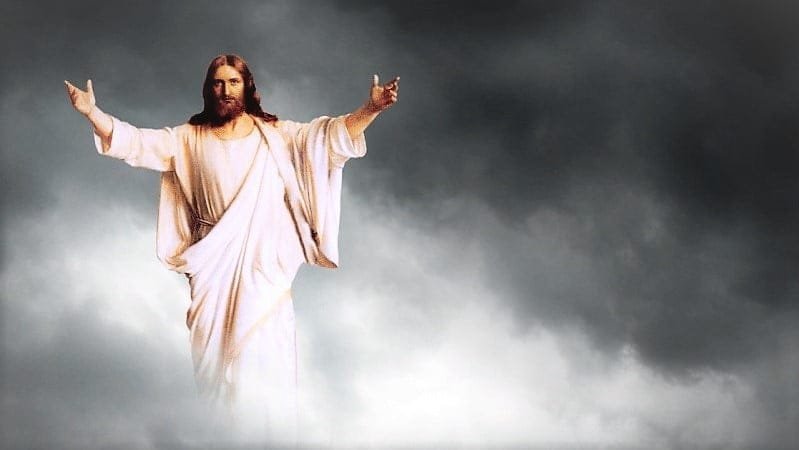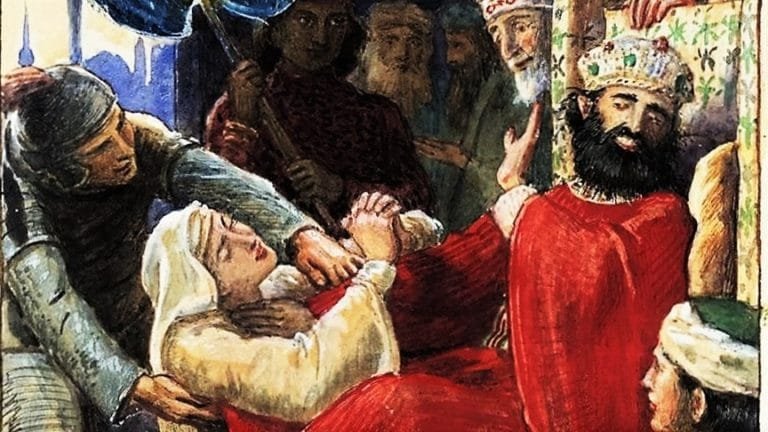DAILY GOSPEL REFLECTION . “THE DAYS OF THE SON OF MAN” (Lk 17:27-37).

Jesus said to his disciples: “As it was in the days of Noah, so it will be in the days of the Son of Man; they were eating and drinking, marrying and giving in marriage up to the day that Noah entered the ark, and the flood came and destroyed them all. Similarly, as it was in the days of Lot: they were eating, drinking, buying, selling, planting, building; on the day when Lot left Sodom, fire and brimstone rained from the sky to destroy them all. So it will be on the day the Son of Man is revealed. On that day, someone who is on the housetop and whose belongings are in the house must not go down to get them, and likewise one in the field must not return to what was left behind. Remember the wife of Lot. Whoever seeks to preserve his life will lose it, but whoever loses it will save it. I tell you, on that night there will be two people in one bed; one will be taken, the other left. And there will be two women grinding meal together; one will be taken, the other left.” They said to him in reply, “Where, Lord?” He said to them, “Where the body is, there also the vultures will gather.”
Gospel Commentary from the Navarre Bible, Commentary to the Gospel of St. Luke (with permission)
- These words of our Lord are a prophecy about the last coming of the Son of man.
- We should remember that prophecy often involves events on different levels, many symbols, a terminology of its own; the chiaroscuro which they create gives us insight into future events, but the concrete details only become clear when the events actually occur.
- Our Lord’s last coming will be something sudden and unexpected; it will catch many people unprepared. Jesus illustrates this by giving examples from sacred history: as in the time of Noah (cf. Gen 6:9 – 19:7) and that of Lot (cf. Gen 18:16 – 19:27) divine judgment will be visited on men without warning.
- However, it is useful to recall here that everyone will find himself before the divine Judge immediately he dies, at the particular judgment. Thus Jesus’ teaching has also a present urgency about it: here and now a disciple should scrutinize his own conduct, for the Lord can call him when he least expects.
- 33 “Will preserve it”: what the Greek word literally means is “will engender (his life)”, that is to say, “will give true life to the soul”.
- Thus our Lord seems to mean the following: he who wants to save his life at all costs, making it his basic value, will lose eternal life; whereas, he who is ready to lose his earthly life, that is, to resist even to death the enemies of God and of his soul, will obtain eternal happiness through this struggle. In content this passage is almost identical with Lk 9:24.
- 36 In the Vulgate this verse reads: “Una assumetur, et altera relinquetur. Duo in agro; unus assumetur, et alter relinquetur” (“one will be taken and the other left. Two men will be in the field; one will be taken and the other left”). These words seem to be an addition to Luke, taken from Mt 24:40; they do not appear in the better Greek manuscripts, which is why the New Vulgate omits them.
- 37 “Where, Lord?” The Pharisees had asked Jesus when the Kingdom of God was coming (v.20).
- Now, after hearing the Messiah’s explanation, the disciples, out of natural curiosity, ask him, “Where . . . will this take place?” Jesus replies with a phrase which sounds very much like a proverb and which, precisely because it is enigmatic, suggests that he does not want to give a clear answer to their question. And so our Lord’s short discourse on the coming of the Kingdom of God and of Christ opens and closes with questions put by his listeners, superficial questions which he uses to teach them something which they will later come to understand.
- “Where the body is, there the eagles will gather”: the Greek text uses a word which could mean either eagle or vulture.
- In any event the proverb indicates the speed with which birds of prey swoop down on their victims — apparently referring to the sudden, unexpected way the second coming or last judgment will happen.
- Sacred Scripture also deals with this subject in other passages: “But as to the times and the seasons, brethren, you have no need to have anything written to you. For you yourselves know well that the day of the Lord will come like a thief in the night” (1 Thess 5:1.2).
- Once more Jesus is exhorting us to be watchful: we should never neglect the most important thing in life — eternal salvation.
- “All that, which worries you for the moment, is of relative importance. What is of absolute importance is that you be happy, that you be saved” (St. Josemaria, The Way, 297).
- So curious are the Pharisees and the disciples about the time and place of the last coming that they are distracted from Jesus’ main point; the same thing happens to us: for example, we can spend a lot of time pondering the circumstances of the deaths of people we know, and fail to grasp the warning these deaths contain — that this life is going to end one way or another and that after it we too will meet God.
Dear brethren in Christ, one day, Our Lord Jesus Christ – the Son of Man – will come again. This is the eschatological doctrine of the Gospel, which spurs us always stay alert and prepared by hope. Saint Augustine comments:
- “My brothers, many who do not believe or have heard the voice of the holy patriarchs will be found as the multitude was found in the time of Noah: only those who entered the ark were saved. If they would reflect and change their ways, distancing them from impiety and turning to our Lord, they would atone for their sins and, beseeching his mercy with tears, they would certainly not sin … Let men fear, then, to be like this on the last day. We, my brethren, must behave ourselves in such a way that we change our ways, turning away from impiety and amend our customs, so that that day would find us ready, since, whoever says he will come, never lies. Beware of doubting that what is true “(Sermon 346, A).
A great day ahead. Stay safe and God bless. Fr. Rolly Arjonillo
VIDEO COMMENTARY
Topic: WHAT IS THE BEST WAY TO PREPARE FOR OUR EVENTUAL MEETING WITH OUR HEAVENLY FATHER?
Today’s first reading (2 John 4-9) comes from the shortest book in the Bible. The whole book is not even enough to fill one of its pages. It was written for people who did not believe in the incarnation of Christ and of His being truly God and man. And it was written for the first Christians sometime in the 85-100AD.In today’s gospel (Luke 17:26-37), Jesus warns us to be prepared at all times. His life was about to end, and Luke’s gospel was written long after Jesus’ death and the destruction of Jerusalem happened (which was sometime in 70AD). We will never know when the world will end but we must be ready.
Stay updated: subscribe by email for free TO OUR NEW WEBSITE www.catholicsstrivingforholiness.org (PUT YOUR EMAIL IN THE SUBSCRIBE WIDGET).
We are also in www.fb.com/Catholicsstrivingforholiness. Kindly help more people in their Christian life by liking our page and inviting your family, friends and relatives to do so as well. Thanks in advance and God bless you and your loved ones! Fr. Rolly Arjonillo


